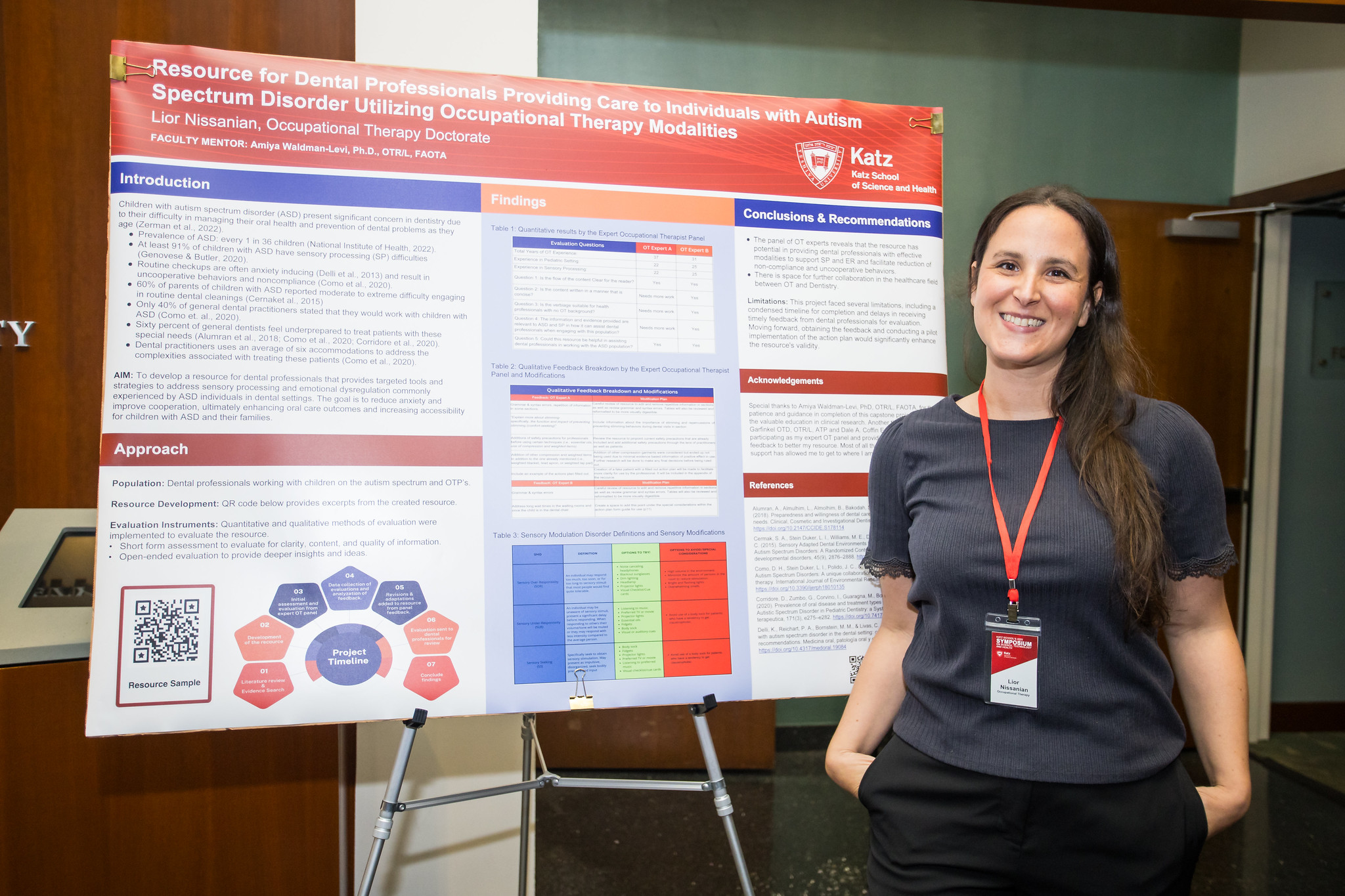Christina Tortolani, Ph.D., first learned about dialectical thinking during her clinical training as a doctoral student.
“I was learning how to implement dialectical behavioral therapy (DBT) while doing a practicum in a hospital-based program for women,” recalls Tortolani, associate professor and program director of Bryant’s Doctor of Clinical Psychology program.
The framework consists of four modules — mindfulness, emotion regulation, distress tolerance, and interpersonal effectiveness — and Tortolani’s supervisor said she would eventually learn to “live the skills” herself.
“That piqued my curiosity and, almost 20 years later, I now understand what that means,” says Tortolani, who went on to integrate regular mindfulness practice into her personal life and professional work and embrace central parts of the dialectal framework, such as promoting change within the context of acceptance of reality as it is.
Dialectical thinking is a cornerstone of Tortolani’s teaching philosophy; she and outside colleagues explored the use of dialectic principles in teaching, student development, and clinical practice. There, they highlight challenges graduate psychology students face and demonstrate how dialectical processes can support them in navigating, addressing, and managing dilemmas inherent in the practice of psychotherapy and in professional development.
This evidence-based approach was developed to treat individuals with chronic suicidal and high-risk behaviors, but its applications have since extended to a range of other presentations associated with emotional dysregulation. Dialectics can be understood as the idea that the world consists of tensions between opposing forces, notes Tortolani.
“We often gravitate toward one side of these oppositions, but doing so may result in a limited or incomplete perspective,” Tortolani says. “A more comprehensive understanding emerges from integrating both sides, recognizing that multiple truths coexist and can be reconciled through a willingness to embrace both perspectives.”
For instance, with parenting, there is a need for structure and rules as well as a need for autonomy and free play; in this sense, dialectical thinking is like a seesaw. She adds that dialectical thinking is the ability to step out of one viewpoint to embrace a more cohesive, comprehensive view of the world. It can be applied to our way of thinking, understanding, and relating to one another by shifting from “either/or” to “both/and,” while entering the paradox of “yes and no” or “true and not true.”
“Dialectical thinking is highly relevant in healthcare and society, where polarized opinions are inevitable,” Tortolani says. “It helps people recognize opposing perspectives and understand and acknowledge points of connection (and disconnection), fostering open dialogue and a more nuanced, sophisticated worldview. Ultimately, this approach can lead to more productive collaborations and better healthcare outcomes.”
Empathy, compassion, and caring are traits that psychology graduate students often identify as strengths that will help them be effective within the field. At the same time, Tortolani notes, these qualities may increase their susceptibility to compassion fatigue and stress; approximately 85 percent of graduate students report symptoms of burnout.
“Integrating dialectics into clinical supervision provides one path to develop self-efficacy and navigate the conflicting tensions inherent in the profession,” Tortolani says.
Mining the entrepreneurial mind: Why business owners should understand psychology
Tortolani notes that some of the most important lessons she teaches her students are rooted in mindfulness: sitting with ambiguity and the unknown, allowing oneself to be vulnerable and competent, having a “strong back” (equanimity) and a “soft front” (compassion). Additionally, mindfulness calls for being in the present moment, focusing on one thing and fully participating in the moment without judgment.
These lessons help Tortolani in teaching students about the tenderness and resilience needed as psychologists, as well as how psychologists — and psychologists-in-training — can become agents of change within their clinical work. She adds that mindfulness and a dialectic framework can serve as a protective factor and can support a psychologist’s own growth just as much as they do for those they help.
“Supervisors navigate promoting change and growth while also providing support and encouragement,” Tortolani says.
Whether a graduate student is trying to follow a treatment plan or protocol and adapt to their clients’ needs or they are trying to uphold professional standards and balance a supportive stance, infusing dialectics into teaching could help with more effective, creative, and responsive supervision.
Additionally, exploring dialectical tensions within supervision encourages students to consider opposing ideas, perspectives, and therapeutic responses — which aid in navigating complex clinical, emotional, and ethical challenges in counseling.
Thoughts On: The future of psychology
“As a professor, my aim is to assist my graduate students in becoming licensed psychologists who embody not only a solid professional identity and clinical competence, but also an ongoing curiosity, self-awareness and sensitivity toward their work and trends in the field,” Tortolani says, who aims to include dialectical thinking into Bryant’s Psy.D. program. “Incorporating mindfulness and dialectics will provide a crucial space for engaging students in an introspective process, helping them to develop self-awareness, emotional attunement, and stability, qualities that do not typically emerge from textbook learning.”













